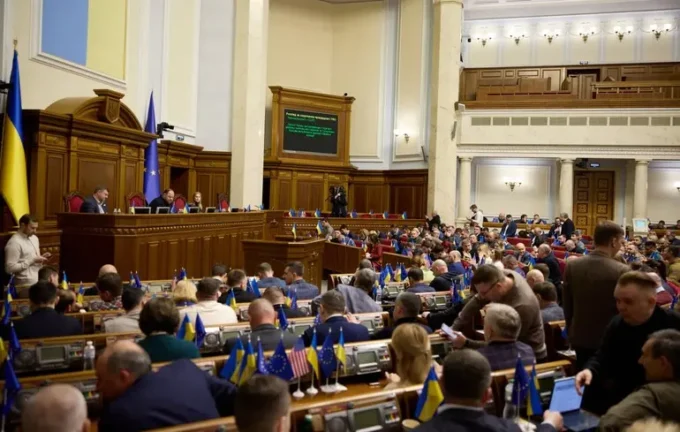The Rise of Russian-Language Channels Among Ukrainian Politicians: Growing Influence and Propaganda

In recent years, Ukrainian politics have experienced a significant transformation in how parliamentarians engage with social media, especially regarding pro-Russian messaging and maintaining a Russian-speaking audience. More than five Russian-language YouTube channels managed by Ukrainian MPs boast substantially higher followers than all Ukrainian-language channels combined, while over a hundred deputies actively operate on various social platforms. This trend is often driven by provocatively framed titles like 'Bussification', 'Authoritarianism', or 'Yanukovych Effect', and many channels broadcast entirely in Russian. Analysis reveals that among deputies currently in detention or in exile accused of treason, figures such as Oleksandr Dubinsky, Yehum Shevchenko, Oleksandr Kunytskyi, and Artem Dmytruk are particularly active. They leverage these platforms to spread pro-Russian narratives and misinformation. The most popular channels among this group have over three million followers collectively, far surpassing the total of Ukrainian-language channels. Facebook remains the dominant platform where MPs are most active, with pages averaging over 300 followers each, although about 16% of them are inactive. YouTube, on the other hand, is less utilized—only 41 out of 137 deputies regularly upload videos, with most channels created before elections and subsequently abandoned. While the "European Solidarity" party leads in overall followers, in Instagram and TikTok, the "Servant of the People" faction outpaces other parties, boasting the largest number of deputies—231 as of July. Some individual deputies even surpass party leaders in popularity: for example, Oleksii Honcharenko’s YouTube channel has a million more followers than Petro Poroshenko’s official page. Honcharenko actively broadcasts sessions from parliament, uses clickbaity headlines, and covers various topics, often in Russian, attracting thousands or millions of viewers. Most of the Russian-language activity occurs on a few select platforms. Telegram remains especially significant for disseminating pro-Russian content, with prominent deputies maintaining channels often under sanctions or in exile. Oleksandr Dubinsky’s Telegram channel, with nearly 150,000 followers, frequently posts about 'Bussification,' authoritarianism, and defending the Russian church. Other popular Russian-language Telegram channels are run by sanctioned ex-deputy Artem Dmytruk and Yevhen Shevchenko. Dmytruk regularly discusses the impossibility of reclaiming all territories occupied by Russia, while Shevchenko’s channel, after his arrest in late 2024, has been inactive but previously supported pro-Russian parties and figures like Donald Trump. Across different platforms, the content of these channels largely revolves around legislative developments, parliamentary activities, and political commentary. The only social network without active Russian-speaking accounts among Ukrainian MPs is Twitter (X), where the deputies predominantly communicate in Ukrainian or English, focusing on the consequences of Russian attacks and engaging with an international audience. Facebook stands out as the platform with the most transparent political advertising, although only a few deputies—Anton Yatsenko, Petro Poroshenko, and Valentyn Nalyvaichenko—ran ads in 2024, spending thousands of dollars. Notably, independent MP from Cherkasy, Anton Yatsenko, declared the highest expenditure, often through multiple NGOs. In Instagram, the most popular figure is Mykola Tishchenko, a former TV host and restaurateur from Kyiv, now an independent MP with suspected involvement in assaulting a military officer. His content now mainly focuses on charity work and supporting the military, but occasionally includes personal posts like birthday greetings to celebrity figures. Overall, Ukrainian politicians increasingly use social media to reach their audiences directly, bypassing traditional media and parliamentary transparency. This surge in activity, particularly in Russian, raises concerns about disinformation, manipulation, and the erosion of democratic accountability amid limited scrutiny of parliamentary work.

